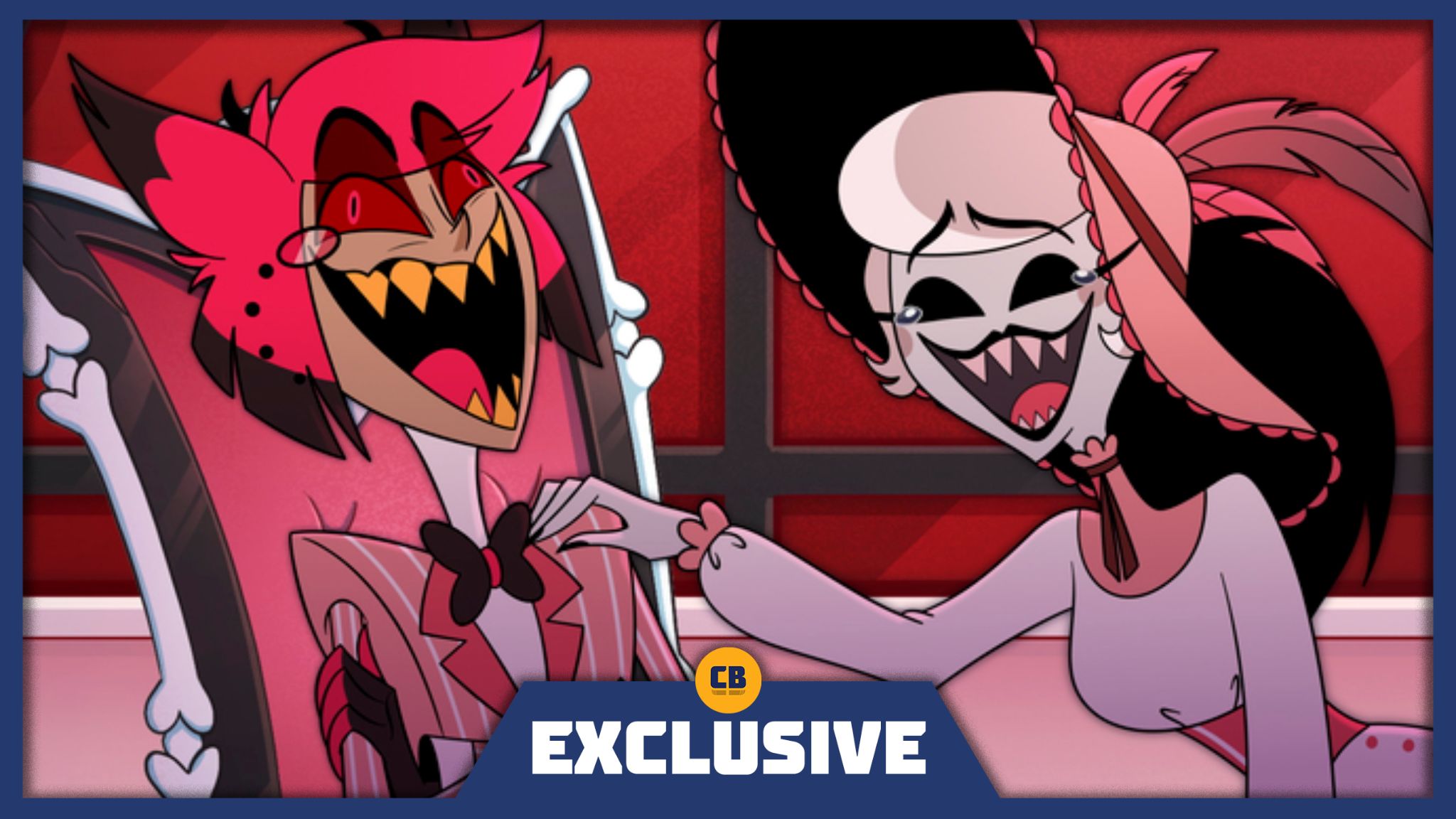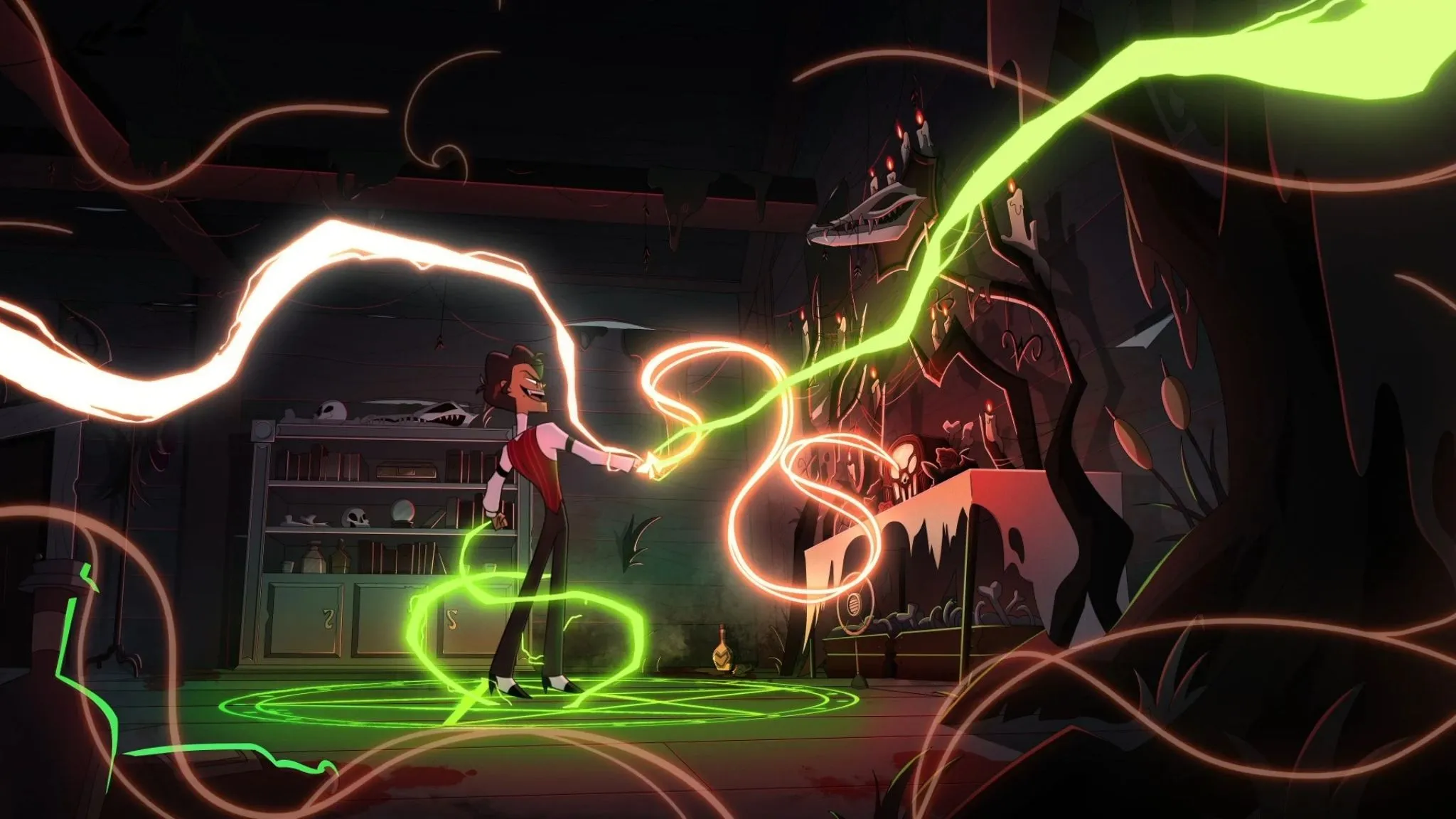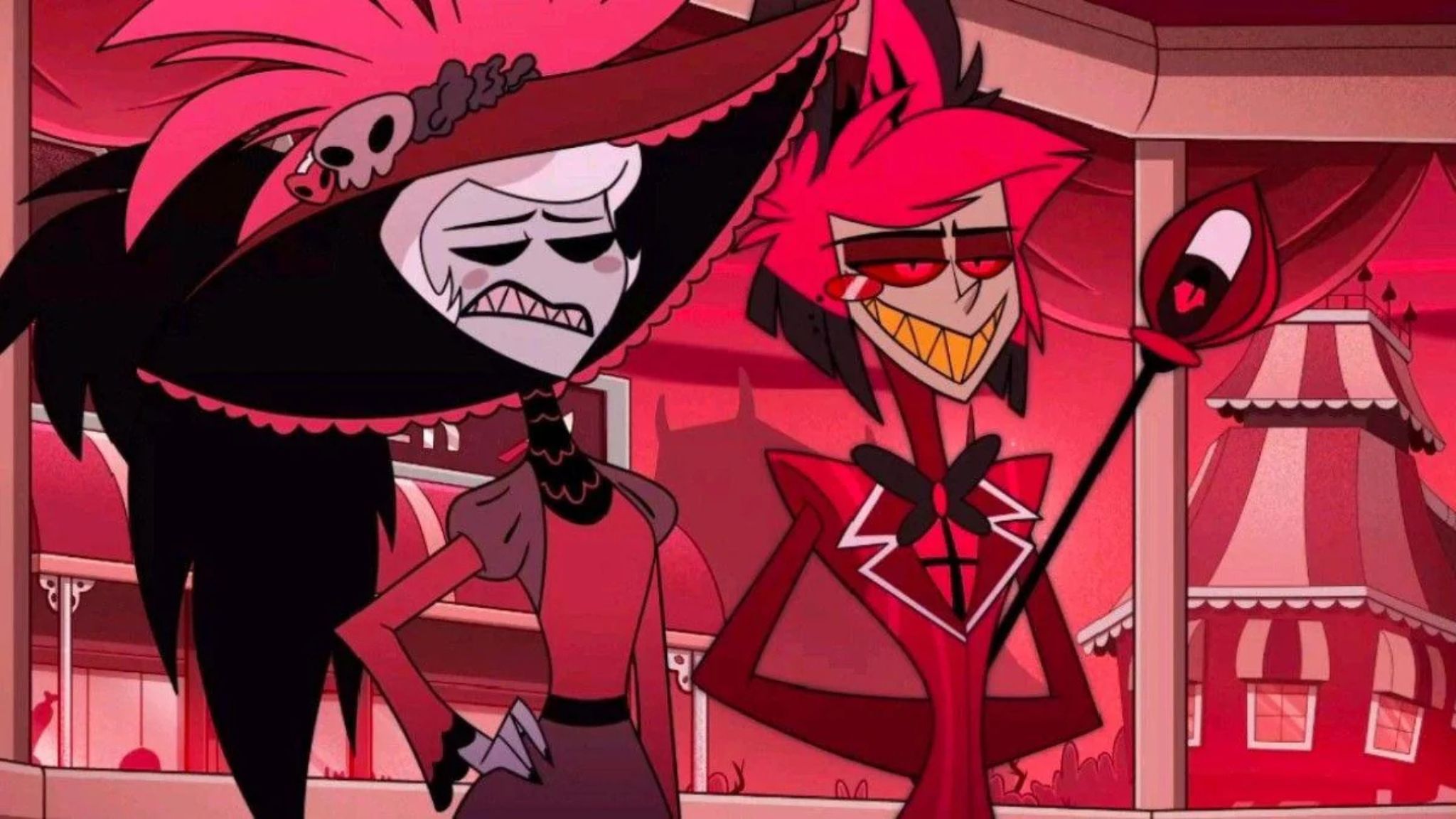
Warning! This article contains spoilers about Season 2 of Hazbin Hotel.
Amir Talai, the voice of the charming but intimidating Alastor in the popular animated series Hazbin Hotel, has a bigger role in Season 2. As Alastor’s past is revealed, Talai perfectly captures the character’s signature cleverness and sarcasm – even with that slightly creepy smile we’ve all become familiar with.
Alastor’s songs in the first season of the show, like “Stayed Gone,” were incredibly popular and helped make the soundtrack a cultural hit. But the second season’s music is even more successful, quickly gaining attention online and on streaming platforms. It’s particularly focusing on Alastor, revealing details about his life as a human and finally answering the mystery of who controls his soul. After almost two years of waiting, the anticipation is intense, and no one understands that feeling more than Talai, the actor who plays Alastor.
I immediately knew one song on the album was going to be huge—it just felt like a guaranteed hit. I had a strong feeling it would become the song of the summer and really change things between Alastor and Rosie, altering their relationship in a big way.
Talai recently spoke with ComicBook about the exciting developments in the Alastor-focused episode, “It’s a Deal” (Season 2, Episode 4), especially the duet between Rosie and Alastor, “Don’t You Forget.” He discussed the difficulties of portraying Alastor’s complex emotions—his growing anger and frustration with Rosie—and capturing the power dynamic between overlords and those who owe them favors. Talai also revealed he kept the song and the episode’s big secrets under wraps for nearly 20 months!

ComicBook: How long have you known about Alastor’s backstory?
I learned most of my character’s history during the first season and shortly after it ended. I usually don’t ask for a lot of background information because it can feel like a burden. I trust the creators – Vivienne [Medrano], Sam [Haft], and Andrew [Underberg] – to give me what I need to perform well. If the backstory isn’t directly in the scene, I don’t typically ask about it. But if they tell me, ‘This is important for understanding the scene,’ then great. I did know how my character died, who he was, and that he was a serial killer. I also knew the deal involved Rosie. I’ve been aware of all this for about 20 months now.
Oh my goodness. I can’t even imagine, because, talk about theories. That was probably one of the biggest theories coming out of season one—who the heck is behind Alastor? So when you found out, what was your initial reaction? Did you have theories of your own, or was it brand new to you?
You know, I remember someone telling me during the first season, while I was filming with Rosie, that her character was actually into mine! I loved that little surprise – it was totally unexpected. Because their relationship seems so perfect on the surface in Season One, I figured the reveal would really catch a lot of viewers off guard, and I was right!
I enjoy how the idea of soul ownership is explored through the various relationships in the show. It’s not a simple, uniform concept. For example, the dynamic between Rosie and Alastor is distinct from Alastor’s relationships with Niffty, Husk, or even Valentino’s with Angel. This complexity creates unpredictable interactions that keep viewers engaged and prevent them from easily figuring things out. It’s refreshing and adds to the show’s entertainment value because it’s not always what you expect.
When you found out that it’s Rosie when you were filming Season One [with] these interactions with Alastor and Rosie—did [the knowledge] inform the way you performed it? Were you trying to make their dynamic friendly or with a little bit of malice?
Did you ever watch the show Lost?
I love Lost. Yes.
I agree! I also found out something fascinating about that show: the writers didn’t plan out the entire story from the start. There were moments where the characters had conversations that hinted at things the audience didn’t know yet, and the actors would ask what was happening behind the scenes. Apparently, the writers themselves weren’t always sure!
I understand many actors would find this approach frustrating, but I actually think it’s fantastic. It’s freeing because it lets you focus on the lines as they are and experiment with different ways of delivering them. This gives the director and editors plenty of options when assembling the final product. It’s quite different from acting in a play, where you build a character’s complete journey over two hours. With movies or cartoons, the director and editors piece everything together afterward. So, your job is to give a strong performance with each take and then trust them to create the best result.

I think it’s interesting because in Season Two, the dynamic changes immediately when you realize the power inequality between the two of them [Alastor and Rosie]. It changes their dynamic. And you have this unbelievable show-stopping number—“Don’t You Forget”—which is such an earworm.
I’ve had this song stuck in my head since February 2024, and it’s been driving me crazy! I’m actually a terrible singer, so I can’t even perform it for others, and I haven’t been able to share it with anyone. It’s been really frustrating. I’m relieved to finally share it with others and let them experience it – I bet someone is already playing it on repeat somewhere. It really is a great song, though.
It’s so Broadway, and it also fits Alastor’s time period, which I really like. It fits that 1930s kind of vibe. But in your performance, how did you strike the balance between Alastor outwardly trying to play nice with Rosie versus his internal frustration?
When acting out the scene with Rosie in the booth, I don’t focus on maintaining Alastor’s constant smile. People often ask if I smile throughout the entire recording session, but the answer is no. That’s the animators’ job to handle. I simply focus on portraying the emotions of the character – if he’s angry, I act angry, and if he’s frustrated, I act frustrated.
I believe Alastor always feels like he’s performing for others. We all put on facades to some extent, and often hide our true feelings. As a person of color in Hollywood, I’ve experienced this firsthand – constantly needing to mask my reactions. I’ve been in situations where I was the only person of color in a room full of people talking about diversity, which feels incredibly ironic. I think that’s why many fans, especially neurodivergent viewers, connect with Alastor – he embodies that experience of masking. It’s something a lot of people do, neurodivergent or not. And it’s especially relatable for women, who are often expected to control and regulate their emotional displays.
I believe many people can connect with the dynamic between Alastor and Rosie, and it’s something I personally understand as well. Because of that, it felt natural to portray those emotions; it didn’t require much effort.
Hazbin Hotel Season 2 is streaming now on Prime Video.
What do you think? Leave a comment below and join the conversation now in the ComicBook Forum!
Read More
- Sony Removes Resident Evil Copy Ebola Village Trailer from YouTube
- Best Controller Settings for ARC Raiders
- Ashes of Creation Rogue Guide for Beginners
- So Long, Anthem: EA’s Biggest Flop Says Goodbye
- The Night Manager season 2 episode 3 first-look clip sees steamy tension between Jonathan Pine and a new love interest
- Simu Liu Addresses Copenhagen Test Season 2 After Hit Sci-Fi Show’s Twist Ending (Exclusive)
- Hunting Exotic Tetraquarks with Advanced QCD Calculations
- Crypto Prices Soar! Trump and Powell’s Feud Sends Markets Into a Frenzy! 🚀💰
- Steam Reaches New Milestone of Over 42 Million Concurrent Users
- Resident Evil Showcase Gives Us Another Look at Requiem This Week, Here’s When to Watch
2025-11-13 03:11